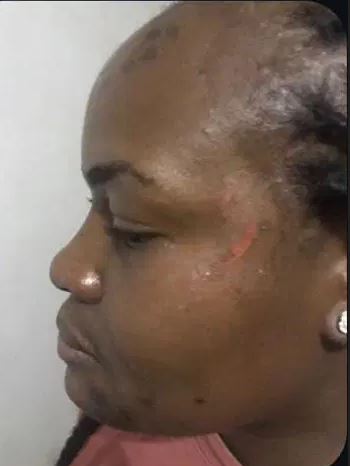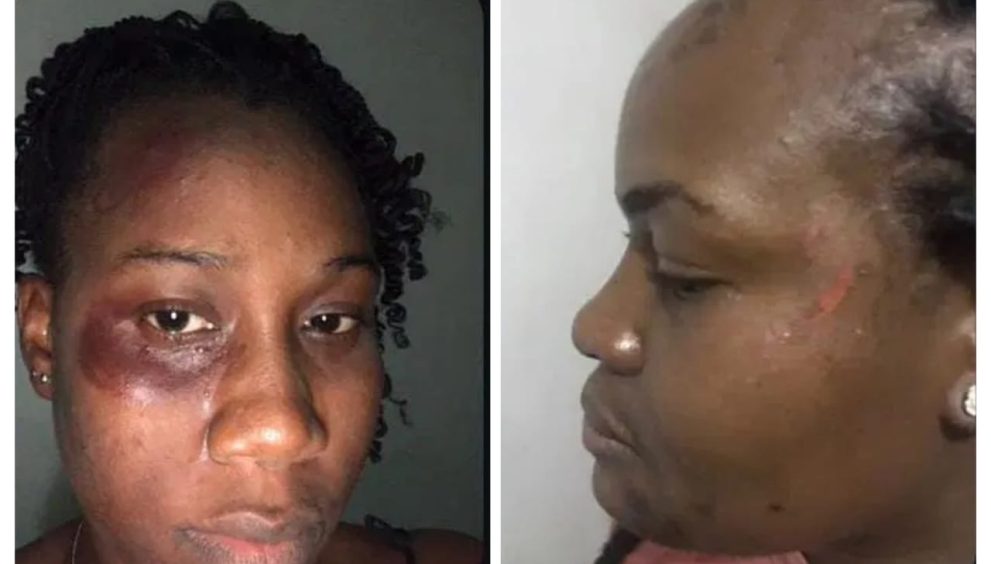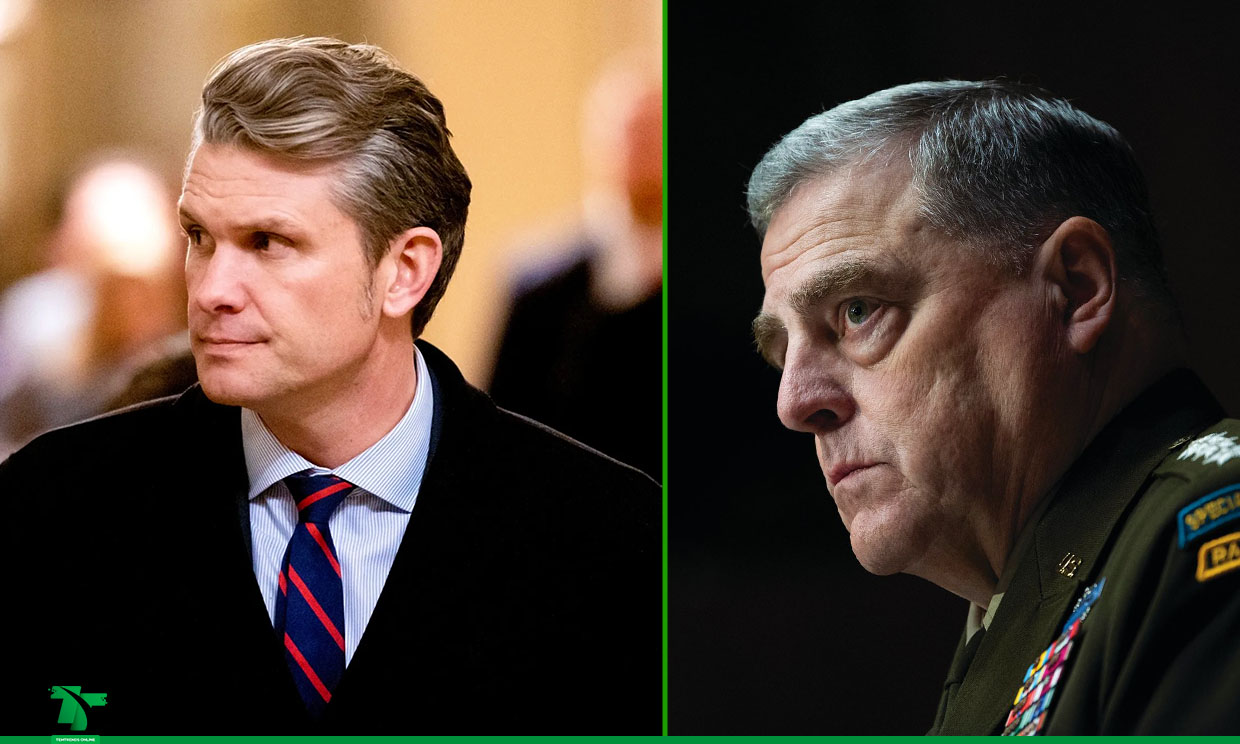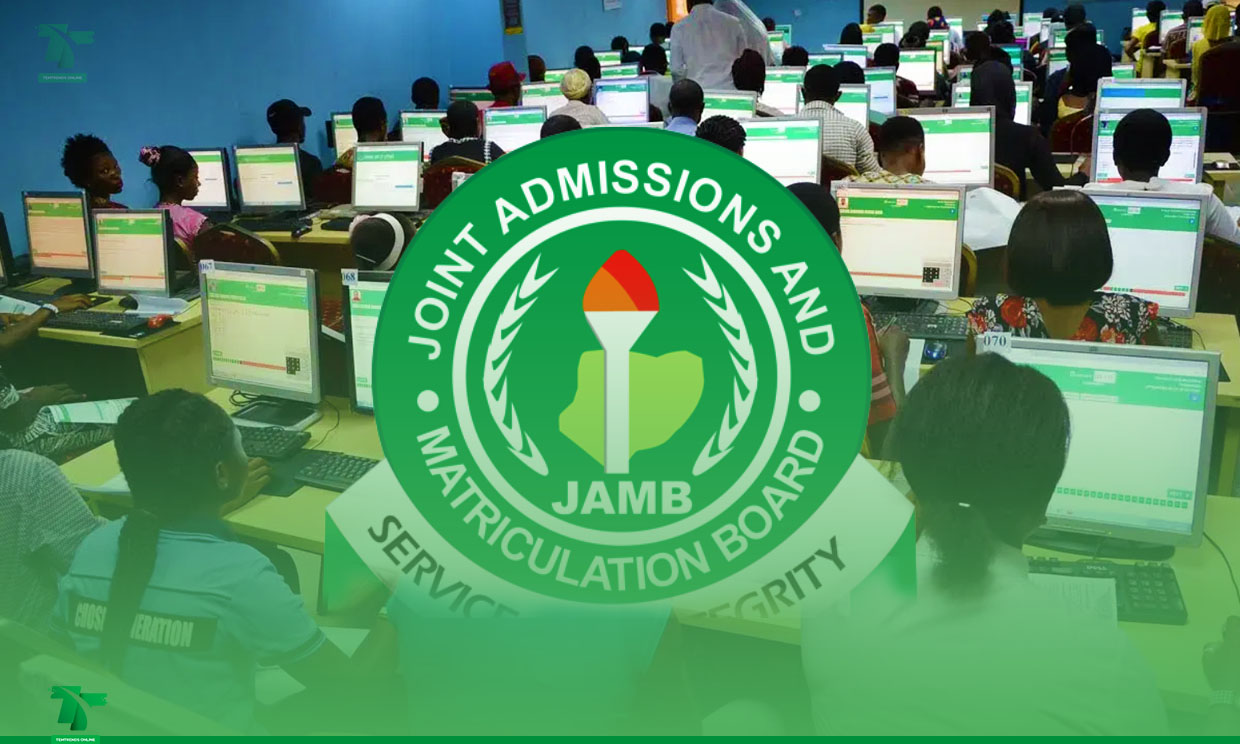Two female corps members in Enugu East LGA, Enugu State, have accused a Corps Liaison Officer (CLO) of physically assaulting them during a meeting held last Saturday.
It’s important to recognize the growing concerns surrounding the safety of corps members, especially as cases like these continue to surface. The NYSC, which stands for the National Youth Service Corps, is an institution that serves as a rite of passage for many young Nigerians.
Corps members are often posted to far-flung areas of the country, where they are expected to contribute to community development and learn valuable skills. However, incidents like this one paint a worrying picture of the challenges corps members face while in service. The alleged assault raises concerns not only about the conduct of the CLO in question but also about the wider culture of impunity that has been reported in some NYSC posts across Nigeria.
The physical and psychological toll of such an attack on young women should not be underestimated, and this incident highlights a much larger issue that needs immediate attention.
According to reports, the CLO allegedly intimidated the victims and later claimed to be “untouchable” due to his connections with NYSC officials.
The incident came to light when a relative of one of the victims, using the handle @JoiceofLagos, shared the story on X (formerly Twitter). They alleged that law enforcement officers were pressured into dropping the case after police intervention.
Social media platforms like X (formerly Twitter) have become powerful tools for raising awareness on social issues, especially when traditional channels fall short. In this case, the victim’s relative’s decision to use the platform to bring the incident to the public eye is significant. It not only allowed for swift dissemination of information but also generated widespread support for the victims.
In recent years, social media has played a critical role in giving voice to individuals who otherwise may have been silenced by systemic barriers. However, it also highlights the challenges that come with online activism. Although it can amplify the calls for justice, social media alone is not a substitute for legal action or institutional reform. The outcry on social platforms should be seen as a call to action for the NYSC, law enforcement agencies, and the Nigerian government to step up and address the deep-rooted issues of abuse within the system.
The African Women in Public Service (AWiPS) released a statement on Monday condemning the assault.
AWiPS’ statement is a necessary response, but it is also part of a wider conversation about the treatment of women in the public service sector. Women in positions of power and authority are often subjected to double standards, and it is vital that organizations like AWiPS continue to advocate for gender equality in all areas of public service. The assault highlights the vulnerability of women within hierarchical structures, where those in authority, such as CLOs, may abuse their power without fear of consequences.
AWiPS’ call for justice in this case is significant, but it also calls attention to the broader issue of ensuring women’s safety and well-being in the workplace. In the public sector, particularly in positions where individuals work in isolated conditions, it’s crucial to establish clear protocols for reporting abuse, harassment, or any misconduct. Transparency in how complaints are handled is essential for building trust between public service institutions and the people they serve.
Signed by AWiPS President Ugo Agwu-Nnachi, the statement expressed outrage over the alleged abuse of power and intimidation. The organization demanded a transparent investigation to deliver justice for the victims.
Agwu-Nnachi remarked, “Reports of an alleged assault by a CLO in Enugu State are deeply troubling. The alleged abuse of power and attempts to suppress justice are serious violations of the victims’ rights and dignity, requiring urgent attention.”
The statement further raised concerns about alleged pressure on law enforcement to drop the case, leaving the victims exposed to potential threats.
AWiPS urged the NYSC to ensure a thorough investigation and take decisive steps to guarantee justice is served swiftly.
“This incident is not an isolated case but a wake-up call for systemic reforms within the NYSC program,” Agwu-Nnachi emphasized.
AWiPS reiterated its dedication to protecting the safety and dignity of all women and girls in public service. The organization pledged to actively monitor the case and advocate for justice.
Broader Implications for Corps Members’ Safety
This incident highlights the broader issue of safety for corps members across Nigeria. While the NYSC program has been praised for fostering unity and cultural integration, reports of harassment and abuse have raised questions about the adequacy of its protective measures. Female corps members, in particular, often face unique vulnerabilities, from verbal harassment to physical abuse.
While this specific incident centers on female corps members, it raises questions about the general safety of all corps members in the NYSC program. Corps members often live in remote areas, where they may not have access to the same support systems available in urban centers. As they are expected to contribute to the development of rural communities, they are also placed in vulnerable situations, where abuses of power can go unchecked.

The safety concerns are not limited to harassment or assault but extend to issues like inadequate accommodation, poor living conditions, and lack of access to healthcare. In some cases, corps members are required to serve in environments where they face the constant threat of violence, including gender-based violence, armed robbery, and other crimes.
Improving the safety of corps members means taking a holistic approach to their well-being. It’s not just about addressing the misconduct of individuals but also about creating a safe, supportive environment for all participants. Providing accessible mental health services, establishing clear reporting mechanisms, and offering legal support are crucial steps in ensuring that corps members can carry out their duties without fear of retaliation or harm.
Calls for Systemic Reforms
Advocates are now calling for systemic reforms within the NYSC structure to address such incidents effectively. This includes establishing independent complaint mechanisms where corps members can report misconduct without fear of retaliation. Strengthening oversight on the activities of CLOs and other officials is another area requiring immediate attention.
The ongoing calls for reforms within the NYSC program highlight the urgency of addressing systemic flaws. For reforms to be effective, they need to address not only individual cases of misconduct but also the structural and cultural issues that allow such abuses to thrive. Many critics of the NYSC argue that the program lacks sufficient oversight and accountability mechanisms to ensure that those in positions of power, like CLOs, are held responsible for their actions.
A review of how CLOs and other NYSC officials are selected and trained is necessary. It’s essential to ensure that these individuals undergo comprehensive background checks and are adequately trained on issues related to gender equality, conflict resolution, and ethical conduct. Training should also emphasize the importance of creating an inclusive and safe environment for all corps members, regardless of gender or background.
Additionally, an independent body could be established to handle complaints of abuse and misconduct, ensuring that the cases are handled impartially and transparently. This would help to prevent the suppression of complaints, as has allegedly happened in this case.
Legal Perspectives and Advocacy
Legal experts have weighed in on the case, emphasizing the importance of pursuing justice to deter future misconduct. Human rights organizations have called for pro-bono legal assistance for the victims to ensure they are not silenced by systemic pressures. The National Human Rights Commission (NHRC) has also been urged to intervene and oversee the case’s investigation to guarantee transparency.
Beyond public outcry and organizational statements, legal action remains crucial for holding perpetrators accountable. Victims of assault, harassment, or abuse within the NYSC program must have access to legal recourse without fear of retaliation.
This calls for increased access to pro bono legal services, particularly for corps members who may not have the financial means to pursue cases on their own. Human rights organizations have long called for stronger legal support systems for young people in national service programs. Ensuring that these systems are in place will not only serve the victims but also deter future misconduct by those in positions of power.
NYSC’s Responsibility
As an institution that oversees the welfare of young graduates, the NYSC bears a significant responsibility to protect its participants. Stakeholders have suggested mandatory training sessions for CLOs and other officials on ethical conduct, conflict resolution, and gender sensitivity. Implementing such measures could help restore confidence in the program.
Public Reaction and Social Media Advocacy
The story has gained significant traction on social media platforms, with many users expressing outrage over the alleged abuse and demanding accountability. The hashtag #JusticeForEnuguCorpers has trended, drawing attention to the plight of the victims and putting pressure on authorities to act decisively. Public advocacy has proven effective in similar cases, and it remains a vital tool in seeking justice and systemic change.
Conclusion
The alleged assault on two female corps members by a CLO in Enugu underscores the urgent need for reforms within the NYSC framework. Ensuring justice for the victims goes beyond addressing this isolated incident; it sets a precedent for accountability and safety for all corps members. Organizations like AWiPS and the broader public must continue to advocate for systemic changes to protect the dignity and rights of every participant in the NYSC program.
The incident in Enugu underscores the urgent need for reforms within the NYSC to ensure the safety and dignity of all corps members. This case is just one example of the broader issue that needs immediate attention from both the NYSC and the Nigerian government.
For the NYSC to maintain its reputation and continue fostering national unity, it must address the challenges faced by corps members, particularly women, who continue to be vulnerable to abuse. It is essential for reforms to be introduced to safeguard the rights and well-being of every corps member, ultimately fostering a safer and more inclusive environment for all.
For more updates on breaking news and global events, visit our news page
Share:











